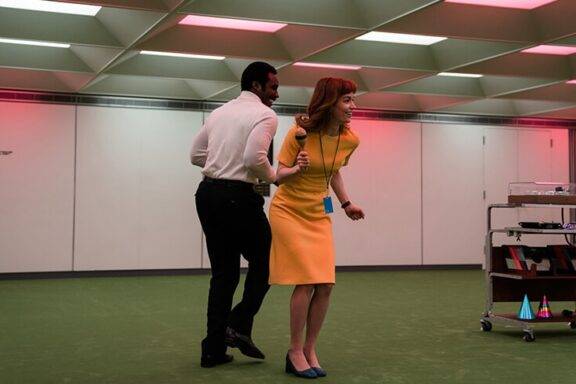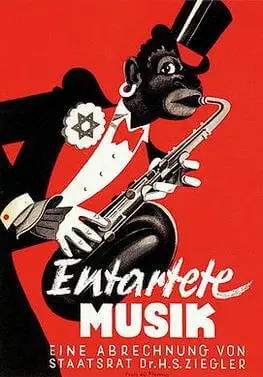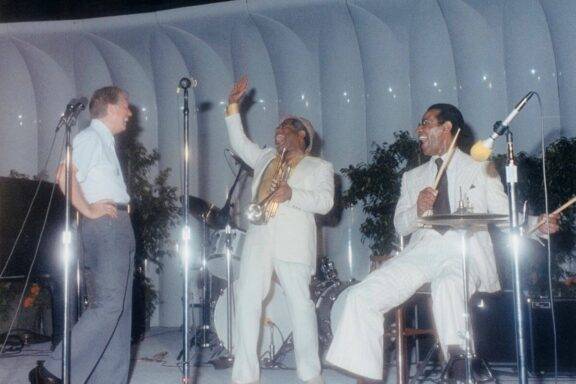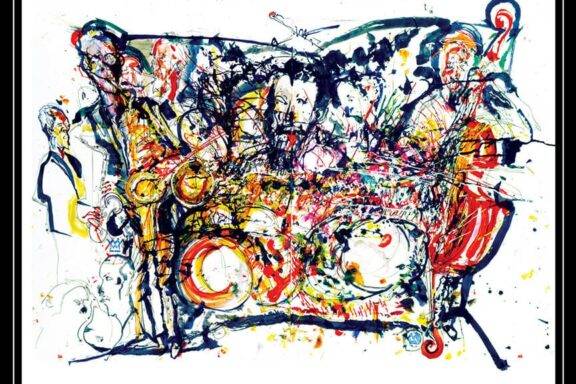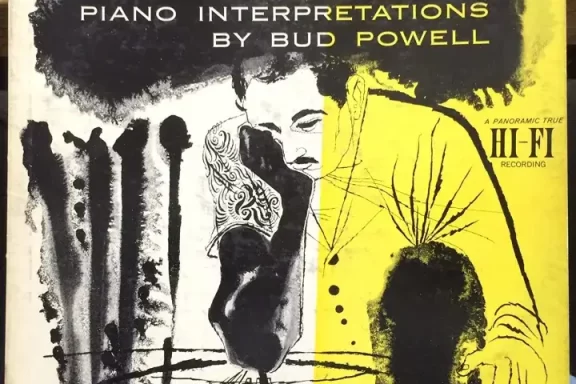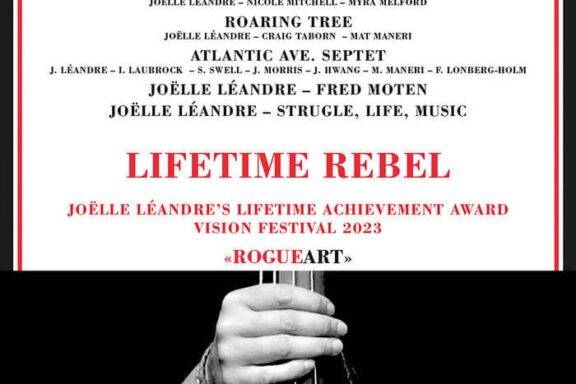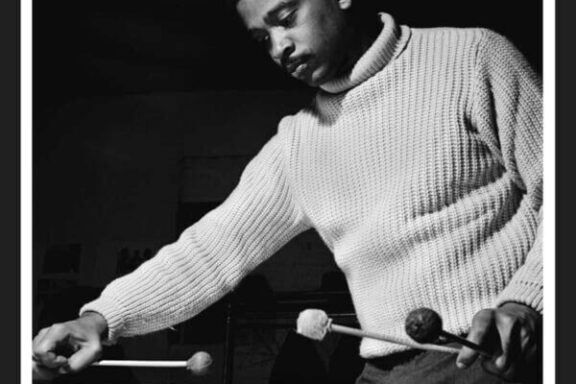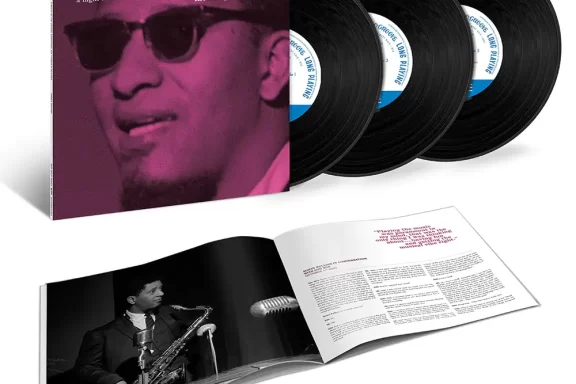What is the sound of being ghosted after going through a job interview? According to the prog-rock band KADAWA, it’s the crisp, complex rhythms, slashing riffs, and soaring major key guitar solo of “We’ll Get Back to You” off their album, Post-Graduation Fees. Take something larger and not focussed on an individual’s experience: What is the sound of what the […]
Author: George Grella
JAZZ: ”Evil is Always a Bad Stylist,” by George Grella
Spend time on social media, especially text-based sites like Bluesky (that’s what I use—and enjoy—now after deleting my account at the neo-Nazi’s site) and you eventually find people decrying a lack of media literacy. What they mean by that is the ability to see the difference between assertion and fact, to know what’s reporting and what’s stenography, to tell when […]
Jazz: Being Here, Now, by George Grella
As a critic, I’m wary of addressing issues of taste. Taste is personal, it’s what we like and what we don’t—I love how in Italian you say you like something with “mi piace,” which means “it pleases me”—and there’s very little taste-wise that is truly bad. Bad taste, done with affection, is kitsch, which is a good thing. Criticism is […]
Best Jazz Albums 2024, by George Grella
This is just one calendar year, which may be sufficient time in the pop music manufacturing industry to spot a trend, but is a far less meaningful span in music that wrestles with its own history—the old is constantly being renewed and incorporated with ideas from other genres—as jazz does, and that is so free of commercial pressures (unfortunately) that […]
The Perpetual Library of Powell, by George Grella
By the time you read this, Bud Powell’s 100th birthday (September 27) will have passed, with a 24-hour broadcast from WKCR and a 25% discount promotion from Blue Note records on the two Powell LPs on their label currently in print. So after blowing out the candles, let’s take a look at how that is a tragedy. Powell was the […]
Joelle Leandre – Lifetime Rebel, by George Grella
Every year, the Vision Festival opens with a concert dedicated to one musician who is honored with a Lifetime Achievement award. That’s an evening of three or four sets, each one featuring this figure. In 2023, that was French bassist Joëlle Léandre, one night at Roulette with four sets in four different grouping around her playing and artistry. That, June […]
Nothing But Vibes, by George Grella
The Penguin Guide to Jazz on CD (6th edition), introduces vibraphonist Bobby Hutcherson by pointing out that if he “were a saxophonist, trumpeter, or pianist, he would be regarded as a major figure in modern jazz.” That’s no exaggeration, Hutcherson (who died in 2016) was one of the greatest of all jazz musicians of the post-1959 era. He was an […]
Jazz: Vision Festival 2024, by George Grella
Here in New York City, the jazz capital of the world, hot summer nights mean not just jazz but free jazz. The very idea of Ornette Coleman or Albert Ayler playing at Slugs’ Saloon fills me with the image of musicians on the bandstand in a hot, crowded club, the air conditioning failing to compete with the temperature outside, the […]
Jazz in the Public Ear, by George Grella
Dear Reader: Thanks for turning to this page. If you are a jazz fan, you know why you’re here, and I’m glad to have you. But what I’m writing this month is more specifically directed at the non-jazz fan, or any reader who happened to turn to this page just to continue reading everything in this fine newspaper. For you, […]
Jazz: Enemies at the Gates, by George Grella
Gatekeeping gets a bad rap—and it should! Guarding information and experiences to keep them away from people is generally bad. At the very least, it’s a petty and infantile exercising of very limited and temporary power, trying to create an artificial sense of exclusivity and prestige in a pluralistic, democratic culture—snobbery in other words. At worst, you get self-perpetuating, smug […]

